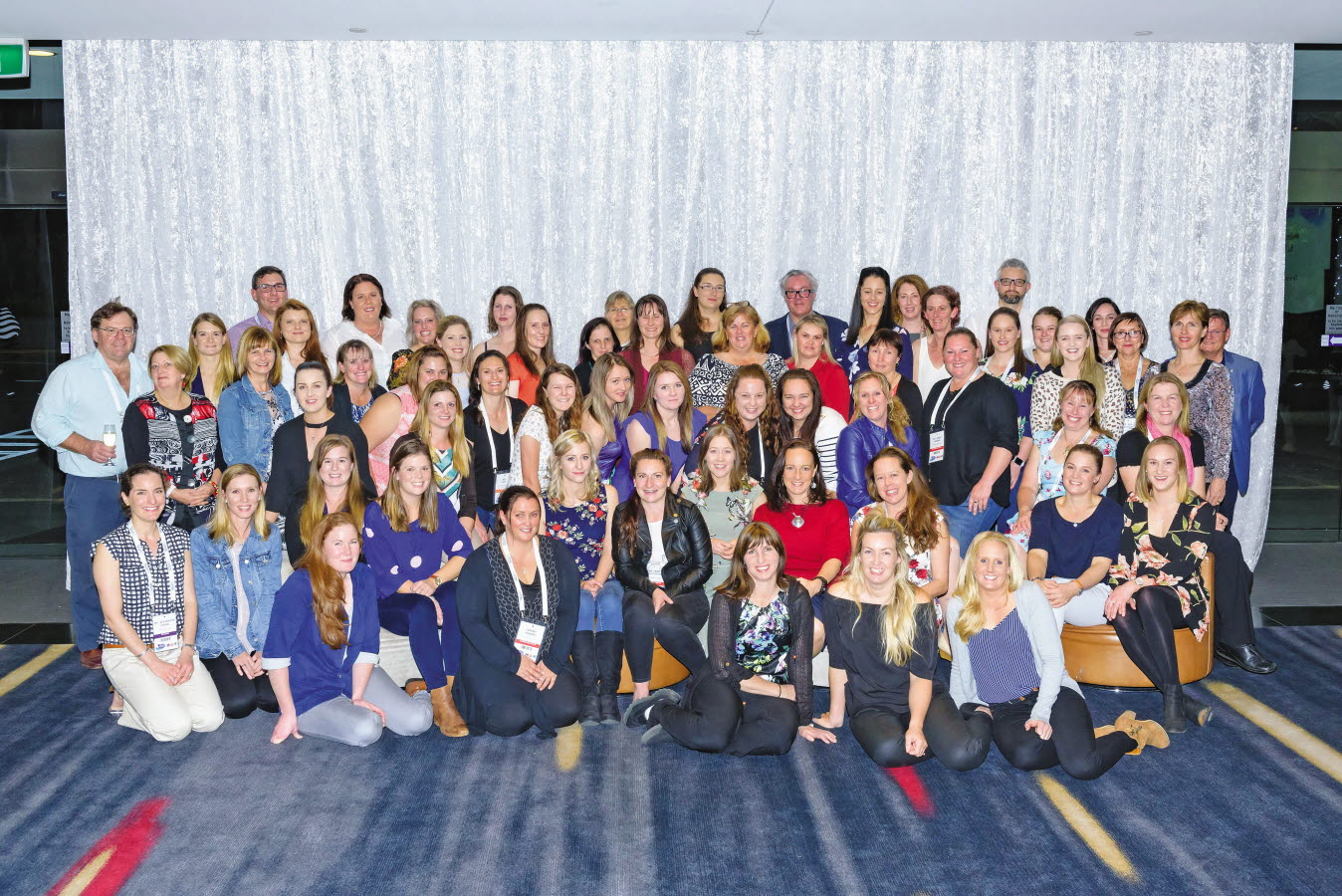All about veterinary nurses

Veterinary nurses at the Equine Veterinarian's Australia Bain Fallon Memorial Lectures Conference.
Veterinary Nursing is a wonderful hands-on career with a lot of diversity and many rewards for those who care for animals, their owners and the bond that forms between them. No two days are ever the same – no matter what type of veterinary work you do. Veterinary nurses are essential for veterinary practices to function and are valued members of the team.
The Veterinary Nurses Council of Australia (VNCA) defines a veterinary nurse as one who holds the Certificate IV in Veterinary Nursing and maintains their knowledge and skills within the profession. Like veterinarians, it is also recommended for veterinary nurses to undertake continuing education throughout their careers in order to stay up to date with advancements within the profession.
Here are some of the duties that veterinary nurses perform:
- Triage: assessing animals as they arrive at a veterinary clinic to determine the severity of their illness or injury
- Preparing consultation rooms. surgery and hospital areas and ensuring that all equipment is clean, sterile and ready
- Assisting with euthanasia and comforting grieving owners
- Preparing operating theatres for surgery
- Monitoring animal’s vital signs while hospitalised and reporting to the veterinarian on duty
- Handling the discharge of animals from surgery or consultations, compiling information for follow-up care
- Weighing animals and checking on current medications
- Feeding and medicating animals staying at the clinic overnight or for extended times
- Managing stock levels of food, medications and accessories
What training involves
Starting from day one when you enter a veterinary practice as a work experience student, right up to the time when you reach the highest level there are qualifications and training resources available to suit your needs as a veterinary nurse.
The Accredited Veterinary Nursing Scheme is presently the pathway for motivated and committed veterinary nurses to demonstrate their individual competence, currency and dedication to the Veterinary Nursing profession. The scheme was initiated by the AVA and the VNCA working together through the National Industry Advisory Group for Veterinary Nursing (NIAG). It’s designed to recognise and reward professional achievements beyond the Certificate IV qualification.
Many veterinary nurses go on to gain additional qualifications in Diploma of Veterinary Nursing General Practice, Emergency and Critical Care, Surgery and Dentistry allowing them to assist specialist veterinarians in these areas. There are also university degrees such as the Vet Tech degrees.
During training, veterinary nurses are assessed by qualified workplace assessors in order to demonstrate competence in providing high standards of patient care and client advice.
